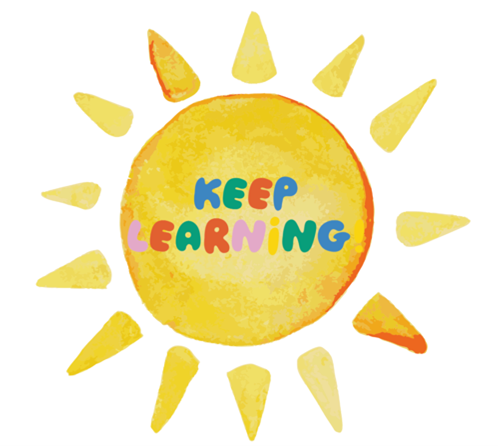Ah, summertime! There’s no doubt, the carefree weeks of summer are an essential time for children to play, unwind and recharge before the beginning of the next school year. As we all know, the downside is that some of the learning and skills they’ve acquired from the prior year can slip away during this cherished time. Fortunately, there are many ways to prevent students from having a “summer slide” while still being able to just be kids.
Here are some fun and easy ideas that you can suggest to your students’ families for keeping their skills sharp and minds engaged during the summer break!
Learn a New Skill
During the school year, children have limited time to explore new hobbies or skills. The summer break provides a perfect opportunity for them to dive into something they have always wanted to learn. Encourage your child to learn a musical instrument, practice a new sport, or develop their coding skills. There are many online resources available…many free..., such as YouTube tutorials, online courses, and educational apps.

Gardening and Nature Walks
Nature is a fantastic way to stimulate children’s curiosity and love of learning. Gardening can teach children about various science concepts like ecology, botany, and life cycles! Nature walks are a great way to explore ecosystems, geology, and biomes in your local community. Encourage your child to keep a summer nature journal in which they can record their observations by drawing or writing the about plants, animals, and landscapes right in your own neighborhood.
Board Games and Puzzles
Playing board games and solving puzzles can help kids develop cognitive skills like critical thinking, strategy planning, and problem-solving. These activities can also enhance their communication, social, and emotional intelligence. Schedule a weekly board game session or initiate a puzzle competition with prizes.
Summer Reading
Reading throughout the summer is truly a ‘must’. It’s an is an excellent way to keep your child’s mind sharp and curious. Start a family book club and encourage your little one to write book reviews or summaries. Make use of your local public library or ‘little libraries’ in your neighborhood.
Teachers, when you encourage your families to incorporating these ideas into their summer plans (and maybe provide a few simple supplies as a summer send-off treat), you’re helping the students you’ve worked so hard with throughout the school year to avoid “summer slide” all while making a positive impact on every facet of their health and their learning.
If you’re looking for more unique, fun and interactive activities for the summertime, be sure to check out GrapeSEED’s ‘Mondays with Marvin’! Each Monday between Memorial Day and Labor Day, our own Miss Lisa and her pal Marvin Monkey share a recipe, STEM project, or craft activity on all of our social media platforms -YouTube, Instagram, Facebook and LinkedIn!
And if you would love to learn more about the GrapeSEED curriculum, complete with its own teacher-led lessons and its own student app, just click here.




